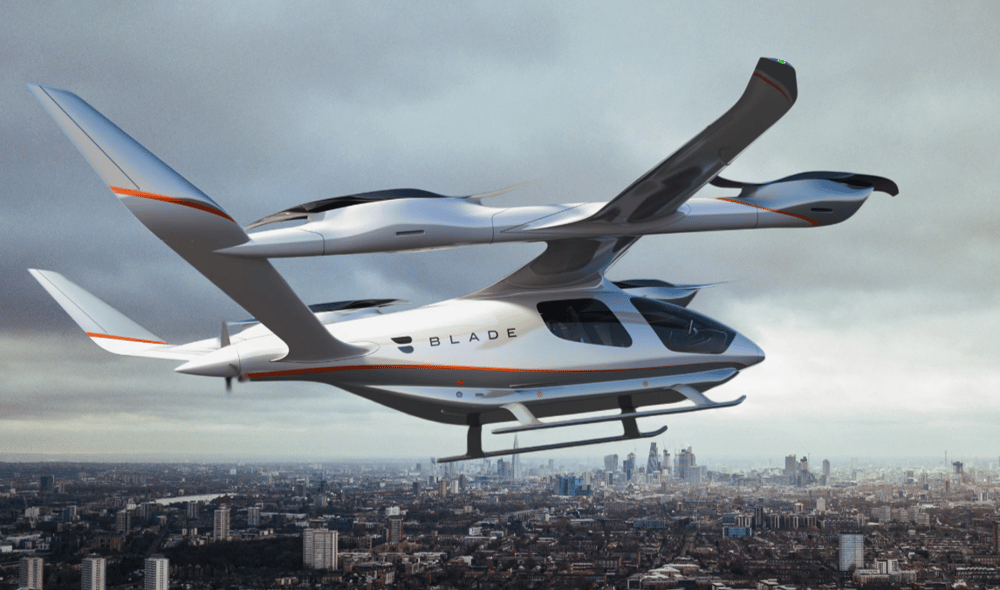Beta Technologies Makes History with First Fully Electric Aircraft Landing at New York-New Jersey Airports
Beta Technologies has become the first American company to successfully land a fully electric aircraft in the New York-New Jersey metropolitan area, marking a significant breakthrough in sustainable aviation. The flight, which touched down at John F. Kennedy International Airport (JFK), lasted 45 minutes and carried a pilot along with four passengers, according to statements from the company and port authorities. This achievement underscores growing momentum within the transport sector toward eco-friendly, electrically powered aircraft.
Implications of Beta Technologies’ Electric Aircraft Flight
The recent successful landing of Beta Technologies’ fully electric plane represents a pivotal moment for the aviation industry, particularly in urban mobility. Electric aircraft, especially those capable of vertical takeoff and landing (VTOL), promise to revolutionize short-distance air travel by providing an efficient alternative to ground transportation congested by traffic bottlenecks.
Beta’s flight at JFK exemplifies progress toward integrating electric aviation into commercial use, aligning with global efforts to reduce carbon emissions and reliance on fossil fuels. The VTOL capability is crucial for urban air mobility (UAM), enabling aircraft to operate in densely populated areas with minimal noise and infrastructure requirements.
The potential market for electric VTOL aircraft includes air taxis, logistics, and regional passenger services, which could transform urban transportation dynamics. With battery technology rapidly improving, these aircraft are becoming commercially viable, supported by regulatory bodies and infrastructure development in major metropolitan hubs like New York.

Key Facts
Beta Technologies executed a 45-minute fully electric flight to JFK Airport in the New York-New Jersey region.
The aircraft carried one pilot and four passengers.
This marks the first time a fully electric plane has landed at an airport in this metropolitan area.
Electric Vertical Takeoff and Landing (eVTOL) technology enables aircraft to operate in urban settings with limited runway infrastructure.
The electric aviation sector aims to reduce urban congestion and carbon emissions from conventional transport modes.
Market Reaction and Industry Perspectives
The aviation and transportation sectors have greeted Beta Technologies’ milestone with considerable interest, viewing it as a validation of electric aircraft’s operational feasibility. Investors and market analysts see the event as a catalyst for growth in electric aviation stocks and associated technologies, including battery manufacturing and urban air mobility infrastructure.
Industry experts note that while challenges remain—such as battery energy density, regulatory approvals, and charging infrastructure—the successful flight demonstrates rapid technological advances. Transport companies, including major airlines and urban mobility startups, are now accelerating investments into electric aircraft development.
From an environmental and regulatory standpoint, government agencies are increasingly promoting sustainable aviation initiatives, providing incentives and frameworks that could facilitate the wider adoption of electric planes.

Key Takeaways
Beta Technologies’ flight is a landmark in the adoption of electric aviation in the United States.
eVTOL aircraft offer solutions to urban traffic congestion through vertical takeoff and landing capabilities.
The event enhances investor confidence in electric aviation and clean transport sectors.
Battery technology and infrastructure development remain critical for commercial scalability.
Regulatory support is key to accelerating integration of electric aircraft into urban transport networks.
The Significance of Beta Technologies’ Electric Aircraft Landing
The historic landing of a fully electric aircraft by Beta Technologies at JFK Airport is a transformative step toward cleaner, more efficient urban transportation. This milestone highlights the convergence of technological innovation, environmental priorities, and urban mobility needs, positioning electric VTOL aircraft as a viable alternative for short-range air travel.
As battery performance improves and infrastructure expands, electric aviation stands poised to redefine passenger transport in major metropolitan areas worldwide. Beta Technologies’ achievement not only sets a precedent but also signals an accelerated shift in the aerospace industry toward sustainable and technologically advanced solutions.















Comments
The decision marks a turning point in aligning automation with next-gen digital infrastructure